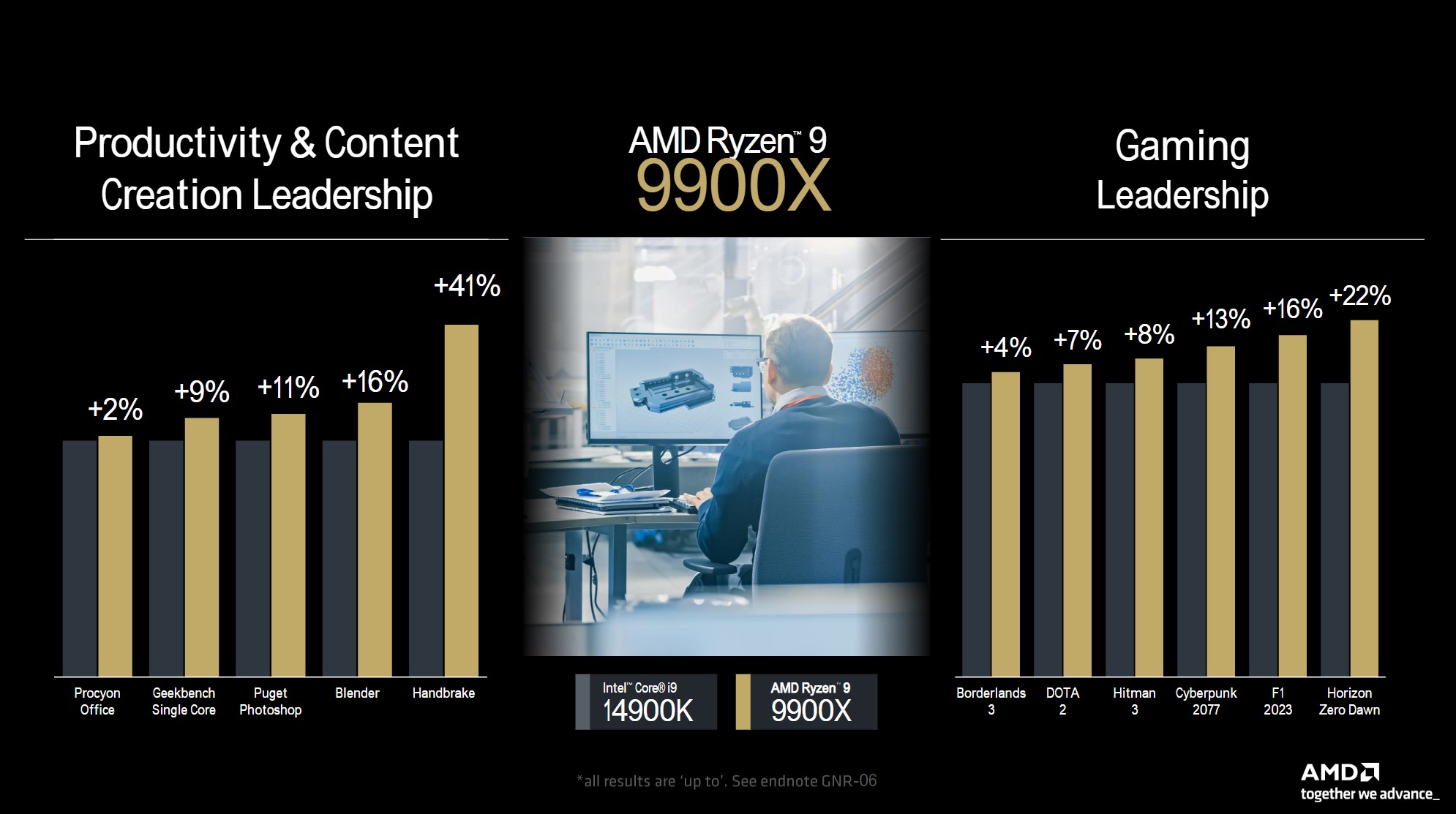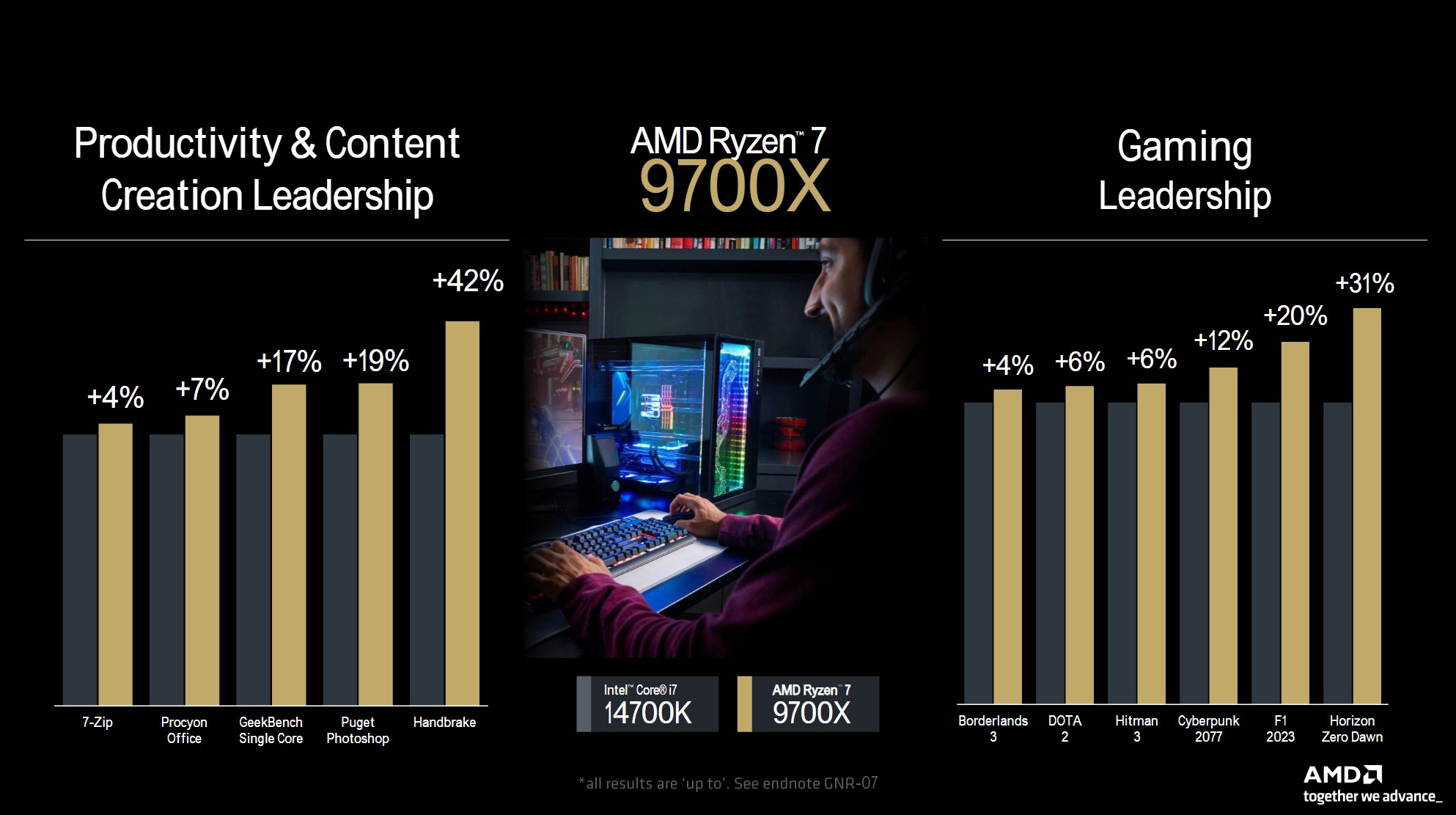
AMD’s Ryzen 9000 CPUs are mostly a known quantity. They were a surprise announcement last month, and they’re arriving soon — AMD confirmed the lineup of four CPUs is arriving on July 31. But after seeing them in action this past week at AMD’s Zen 5 Tech Day, I still have one lingering question — how much will they cost?
That’s been top of mind in recent weeks as we inch closer to the release of these CPUs. Some recent leaks suggest AMD could lower the price of its upcoming desktop chips, but we haven’t heard anything official from Team Red yet. We may not, either, at least not until reviews go live.
Although pricing remains a mystery, AMD spilled the beans on just about every other detail concerning Ryzen 9000 CPUs. That starts with the overall Zen 5 architecture, which sounds like a more significant leap than we initially thought. AMD’s Mark Papermaster described it as a new foundation for Zen, serving as an architecture it will build off of for several years, similar to the original Zen architecture.

There are changes under the hood to back up that claim. Zen 5 now supports eight dispatch/retire units, while Zen 4 only supports six. There are also six arithmetic logic units (ALUs) in the core, up from four previously. A big part of the architectural gains comes from the 512-bit data path for AVX instructions, however. AMD supported AVX-512 previously through two 256-bit paths, but now, it supports a singular 512-bit path.
That’s some dense architecture talk, but these are the driving forces behind the 16% increase in instructions per clock (IPC) that AMD claims. As you can see from the chart above, tests that stress that AVX data path, such as the AES-XTS test in Geekbench 5.4, show a much more significant increase in IPC.
But let’s talk real numbers. AMD shared a variety of performance charts showing an increase with Ryzen 9000 over Intel’s competing 14th-gen CPUs, but it didn’t share a lot of hard numbers. I was able to snap a quick picture of some results with the 16-core Ryzen 9 9950X during one of AMD’s sessions showing the performance at stock speeds without overclocked memory.

Based on those results, the Ryzen 9 9950X ends up about 15% faster than the Ryzen 9 7950X and 13% faster than the Core i9-14900K in Cinebench R23. AMD has claimed an increase of 21% over the Core i9-14900K in Cinebench R24 (note the different version number), so it’ll be interesting to see where the processor lands when we’ve had a chance to test it.

Lower down the stack, things are more interesting. We don’t have hard numbers, but AMD claims a gain as high as 94% with the Ryzen 5 9600X in Handbrake compared to the Core i5-14600K. The other gains are less pronounced, but it’s a good testament to the difference in architecture that Zen 5 brings. There’s also a decent lift in games, from 5% in Hitman 3 up to 29% in Horizon Zero Dawn.
The 8-core Ryzen 7 9700X and 12-core Ryzen 9 9900X don’t show nearly as big productivity gains, but still end up somewhere between 10% and 20% faster than Intel’s competing CPUs. The gaming improvements hold up, however, with Horizon Zero Dawn once again showing the largest improvement.

We don’t typically see gen-on-gen improvements, but AMD shared a comparison for Ryzen 9000. Across the stack, it’s claiming higher performance, and with three out of the four chips using less power. It’s particularly pronounced for the Ryzen 9 9900X and Ryzen 5 9600X, which show gains above 15% with a significant drop in power.
Outside of raw performance, AMD is bringing some platform improvements with Ryzen 9000 CPUs. A new BIOS will enable speed of up to 8,000 MT/s on AM5 motherboards with Ryzen 9000 CPUs, and you can experiment with the new Curve Shaper feature to dial in a more precise overclock. AMD also has the new 800-series chipsets for motherboards. You can see how those break down in the table below.
Pricing may remain a mystery, but we won’t have to wait long until we know all of the details about Ryzen 9000 CPUs. These four processors are hitting shelves on July 31.






